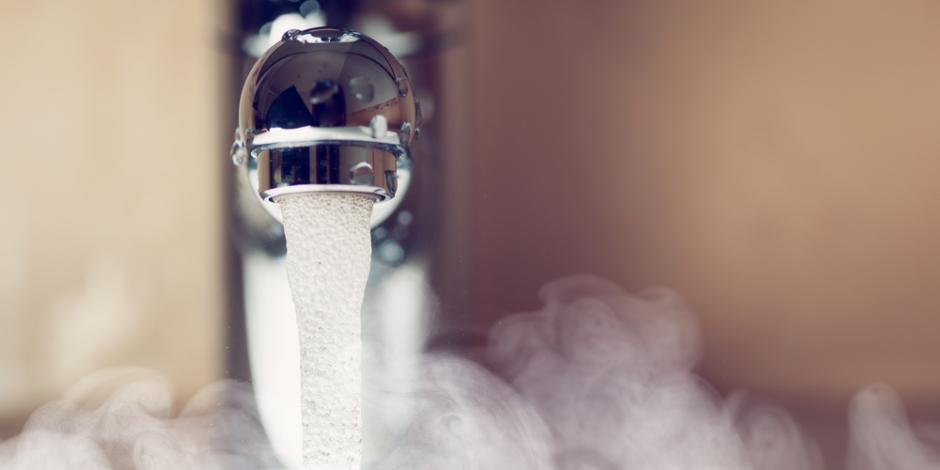
As winter approaches in Rhode Island, local homeowners face the challenge of protecting their plumbing from extreme cold temperatures. Frozen pipes can lead to numerous problems for your heating system. Do you have faucet hookups or exposed pipes in your home which may be vulnerable to freezing? Keep reading to learn more about pipe freezing and what you can do to keep your pipes warm all winter.
The Dangers of Frozen Pipes
Your pipes can freeze any time the temperature is below freezing—and the longer it stays below freezing, the more likely your pipes are to freeze. A burst pipe is the most common issue, but frozen pipes can cause several problems with your furnace, boiler, or heat pump as well, such as:
Water damage to HVAC system components
Reduced system efficiency from moisture and ice buildup
Increased humidity levels that can affect indoor air quality
Potential refrigerant line freezing and system pressure imbalances
Blockages in ductwork and ventilation systems
The result of these issues can be extensive damage and expensive repairs to both your plumbing and HVAC systems.
Strategies to Prevent Pipes Freezing
To safeguard your plumbing this winter, consider these effective strategies and ensure your home remains warm and comfortable.
Invest in Insulation
Focus on pipes in unheated spaces like attics, basements, and crawl spaces.
Keep the Heat On
Keep your home's temperature at a minimum of 55°F, even when you're away. You may also consider a smart thermostat to help maintain optimal temperatures efficiently.
Open the Cabinet Doors
Open kitchen and bathroom cabinet doors—especially those in cabinets next to exterior walls—to let warm air reach pipes near exterior walls.
Let Faucets Drip
For faucets in problem or under-insulated areas of your home, allow a slow trickle of water to create a continuous flow that can prevent freezing.
CARJON: Your Partner in Winter Home Comfort
While we don't offer plumbing services, we specialize in comprehensive HVAC solutions that can help prevent issues related to frozen pipes—from heating maintenance and smart thermostat installation to humidity control and more.
Don't let winter catch you unprepared. Contact CARJON today for a winter readiness inspection of your heating system. Our expert technicians will assess your home's HVAC needs and provide tailored solutions to keep your home warm and efficient all winter long.
Remember, a well-maintained heating system is key to preventing frozen pipes and ensuring your comfort. Schedule your winter tune-up or enroll in a residential maintenance agreement with CARJON now and enjoy peace of mind throughout the cold season.



